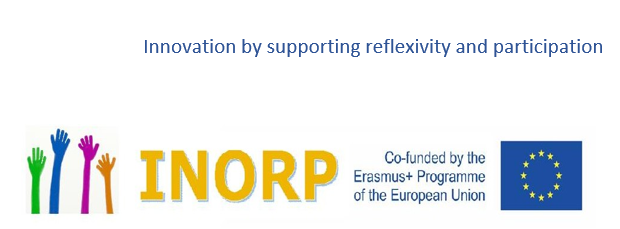Reflexivity and participation in communities CZ

4. Preparation for intervention
| Theme | Topic | Guiding questions |
|
Creating |
Participation by service users in finding solutions is not optional but a core condition of professional social work. Meaningful participation arrangements combine the following considerations: Krumer-Nevo & Barak (2007, 37) conclude from |
For what precise purpose is it important to hear and Am I prepared to deal with conflicting versions of “need”? Am I aware of the extent and the limits of my professional power? |
|
Recognising strengths |
Research findings (ibid p. 38): overcoming the “deficit perspective” The collaborative approach assumes that all families have competences (as well as a lack of competences) and are entities which experience to solve problems (e.g. Berg & De Jong, 1996). “Our results demonstrate that if social work aims to support participation and involvement in active citizenship, a genuine respect for service users has to be evident by taking seriously their perspectives, knowledge, and experiences about services” (Matthies, Närhi, & Kokkonen, 2018, 15). |
According to what kind of criteria did I construct my version of “what is the problem”?
|
| Conditions of access | Legal considerations (for instance access to children), “right to be heard” considerations of consent, declaration of intentions, securing confidentiality, “access” needs to be continuously re-negotiated participatively in the process of the exchanges |
Have I checked the legal How do I communicate these? |
| Epistemic rights and boundaries |
epistemic rights: the ‘distribution of rights and responsibilities regarding what participants can |
What are the differences between mine and the service user’s “framing” of the problem? In which circumstances do I make reference to my professional qualifications? What allows me to feel and express sympathy for a service user? |
| Objectives, outcomes |
Outcomes in participative approaches are largely Agreed or contractual premises must therefore include what is to be gained in the process and what are the objectives stated from both sides. Participative approaches aim to make social |
What would for me be the best possible outcome of the intervention? Which are the differences between my and the Does my experiencing “the case” induce me to question the adequacy of existing service provisions or social policies? |
Resources:
Berg, I.K. a De Jong, P. (1996). Solution-building conversations. Co-constructing a sense of competence with clients. Families in Society: The Journal of Contemporary Human Services. 77(6), 376–391. https://doi.org/10.1606/1044-3894.934
Heritage, J. and Raymond, G. (2005). ʻThe terms of agreement: Indexing epistemic authority and subordination in talk-in-interactionʼ, Social Psychology Quarterly, 68(1): 15–38.
*Huber, M. A., Metze, R., Veldboer, L., Stam, M., van Regenmortel, T. a Abma, T. (2019). The role of a participatory space in the development of citizenship. Journal of Social Intervention: Theory and Practice, 28(1), 39. https://doi.org/10.18352/JSI.583/GALLEY/572/DOWNLOAD
Matthies, A.-L., Närhi, K. a Kokkonen, T. (2018). The Promise and Deception of Participation in Welfare Services for Unemployed Young People. Critical Social Work, 19(2), 1–20. https://doi.org/10.22329/csw.v19i2.5677
Ribner, D. S. a Knei-Paz, C. (2002). Client's view of a successful helping relationship. Social work, 47(4), 379–387. https://doi.org/10.1093/sw/47.4.379
Saar-Heiman, Y., Lavie-Ajayi, M. a Krumer-Nevo, M. (2017). Poverty-aware social work practice: service users’ perspectives. Child and Family Social Work, 22(2), 1054–1063. https://doi.org/10.1111/cfs.12325
Sousa L, Costa T. (2010). The multi-professional approach: front-line professionals' behaviours and interactions. International Journal of Social Welfare 19: 444–454.
